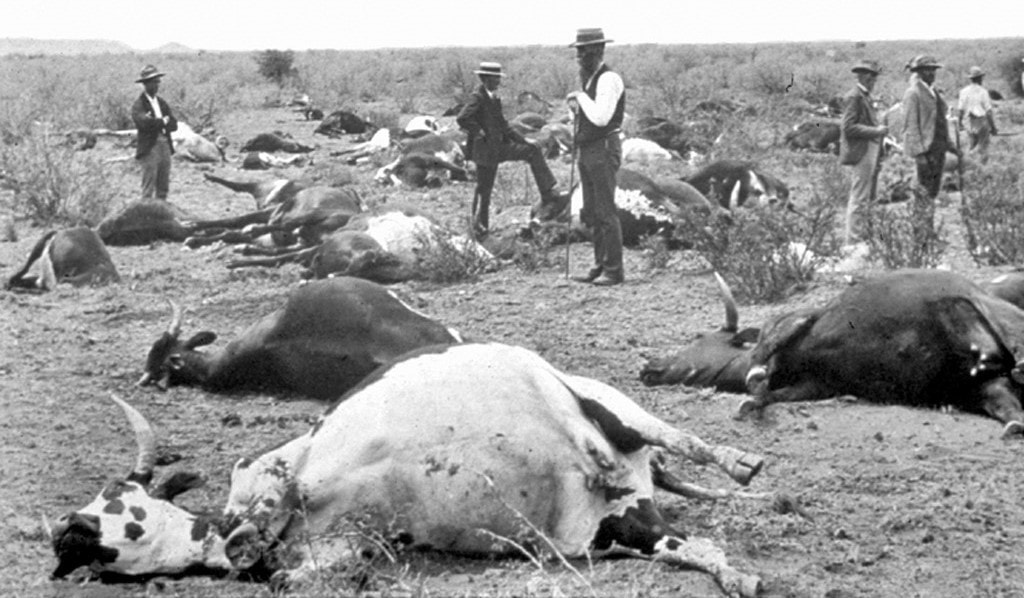|
Rinderpest, or cattle plague, devastated southern and eastern Africa in the 1890s. With a fatality rate near 100%, the bovine epidemic caused mass starvation among humans. Europe and Russia managed to eliminate the pestilence by the early 1900s through quarantine, hygiene, and slaughter. After development of a vaccine, rinderpest in 2011 became the second disease ever officially declared eradicated.
I was privileged some years ago to attend a meeting on disease eradication at The Carter Center in Atlanta. With smallpox eradicated by 1980, what other human diseases might be targets? As best I recall, criteria included that a disease be infectious, caused by a virus that would die out without human hosts, and preventable by vaccine. Covid-19 wouldn’t make the list; even if every human were immunized, coronavirus could lurk in other animals to come back later. Herd immunity is the way a mostly immune population forms a circle of protection around the susceptible few. It’s why unvaccinated babies and people with weak immune systems rarely get measles in the United States; the virus can't spread for lack of hosts. The threshold for herd immunity depends on too many factors to calculate precisely. How effective and long-lasting is the vaccine? How infectious is the virus? How carefully do people behave? How much do unvaccinated individuals cluster together, letting a single case set off an outbreak? Those factors for Covid are all changing or not fully known. Perhaps the best we will manage is control. Coronavirus may continue to circulate at low levels, mutating along the way. We may return year after year for the latest vaccine formulation, as many of us do for flu. Not the best of all possible worlds, but one we could live with. We may have to.
4 Comments
5/17/2021 06:01:06 pm
Yes, many variables, and many not-yet-knowns. I am glad I am not the one who has to make the policy recommendations! One possible advantage to letting fully vaccinated people do a lot they couldn't before is that it might motivate some people who were undecided about vaccination to go ahead and get vaccinated so they can take off their masks.
Reply
Jane Aldrich
5/18/2021 11:54:36 am
Thanks for this historical perspective - interesting! I hope seeing that others are/have getting/gotten vaccinated makes it easier for those who are hesitant, or even resistant, to feel more comfortable about getting vaccinated.
Reply
5/19/2021 06:27:03 am
I share your hope. The die-hard resistant may not change, but the many who are just hesitant may come round as vaccination is normalized and comes to where they are. Some were suspicious because the publicity given to how fast the vaccines were developed. As time passes and research continues, that should fade.
Reply
Leave a Reply. |
AuthorI'm a historian who writes novels and literary nonfiction. My home base is Madison, Wisconsin. Archives
July 2024
|

 RSS Feed
RSS Feed